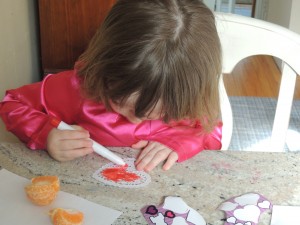I took two of my children to the mall a few weeks back. After stocking up on sneakers and sandals, we stood in line to ride the carousel. I paid $2 each for their tickets, then the lady at the cash register peered over the counter at my daughter Penny. “Is she a special need?” she asked me.
I stammered something in response.
“Special needs ride free,” she said, handing me back my money.
I suppose it’s a nice policy to give free rides to kids with special needs. I don’t fault the lady behind the ticket counter for not knowing about “person-first” language—which is to say, she could have asked, “Does your daughter have special needs?” I don’t fault her for seeing what is written on my daughter’s face—Penny has trisomy 21, better known as Down syndrome, the presence of a third copy of chromosome 21 in every cell of her body.
At the same time, something bothered me about the exchange. However kind her intentions, she looked past my particular child and saw instead a broad, abstract, dehumanized category. Instead of seeing Penny, she saw “a special need.”
Plenty of factors probably played into that moment, but it left me thinking about how our culture talks about Down syndrome.
To continue reading go to News Flash: Not Everyone With Down Syndrome is Suffering over at hermeneutics.











